Download the whitepaper here:

This paper provides a practical framework for adapting your workflows, culture, and management style to capitalize on this new velocity and avoid productivity stalls.
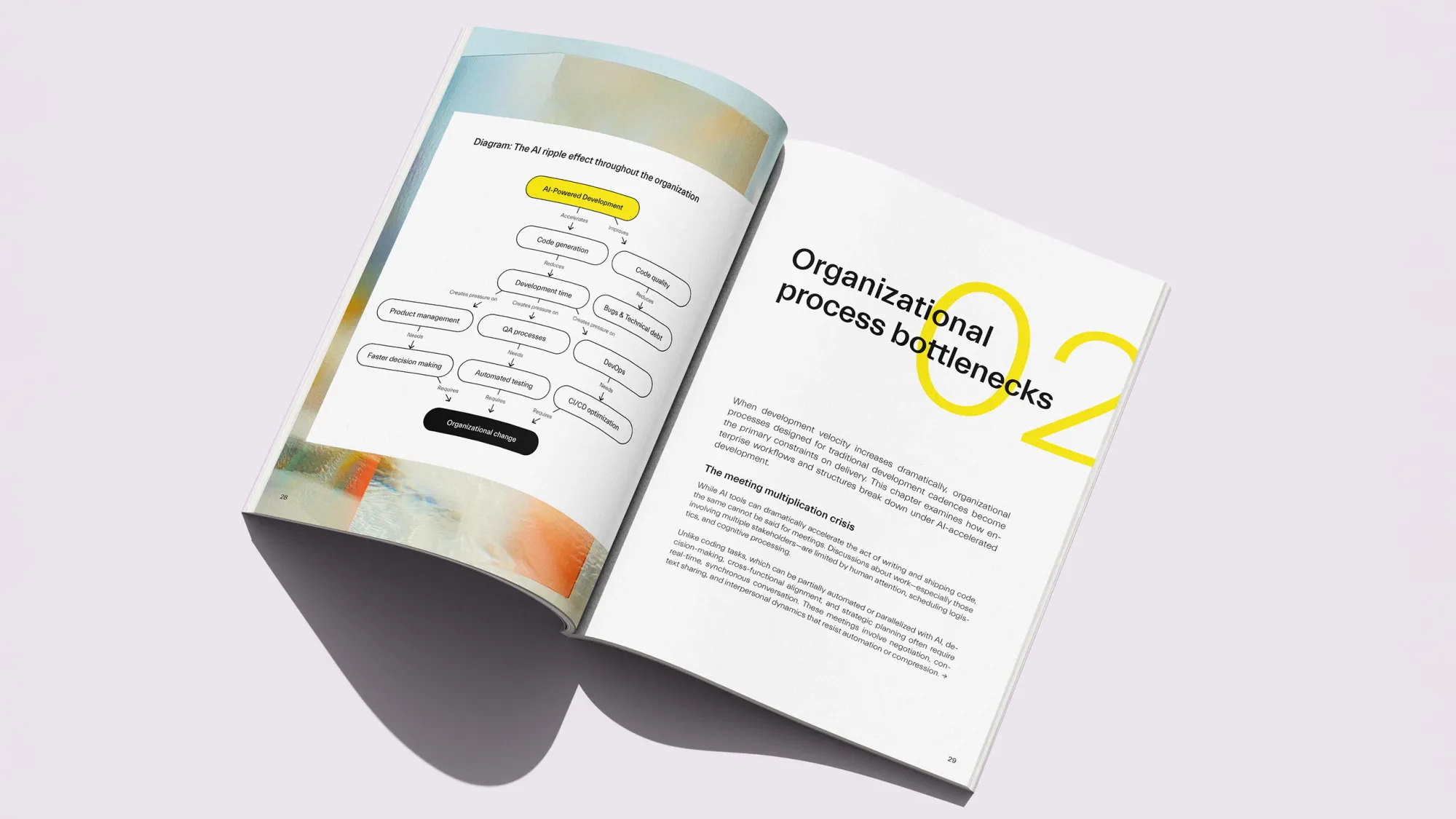
What’s inside
- How AI enhances speed and quality across diverse development tasks
- How to address challenges and maximize the benefits of AI-assisted workflows
- Insights into achieving consistent performance with AI tools
- Real-world examples of how developers leveraged AI for documentation, test writing, and more
A peek inside
The whitepaper is thoughtfully designed for clarity and ease of reading. Inside, you’ll find valuable diagrams, real research results, and practical insights into how AI is reshaping development workflows—from tools to team dynamics. It’s everything you need to move from hype to action.
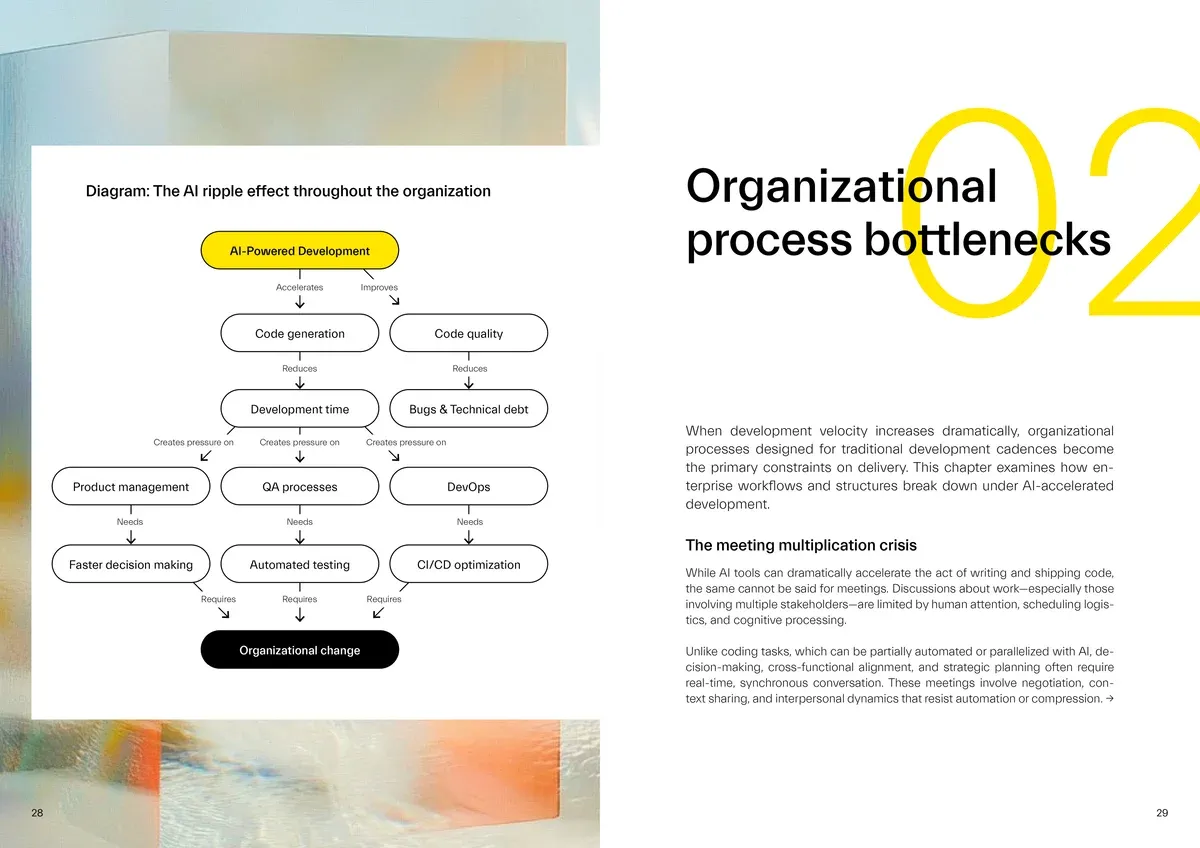
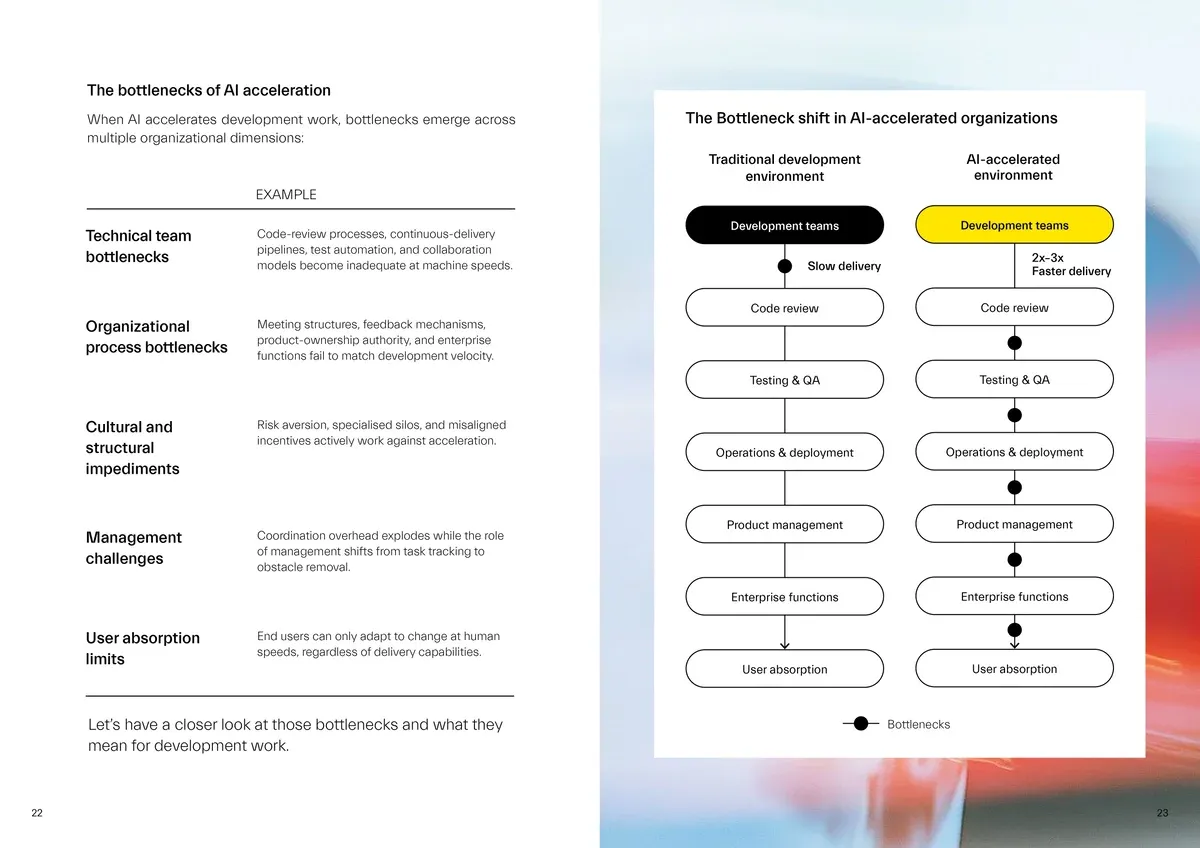
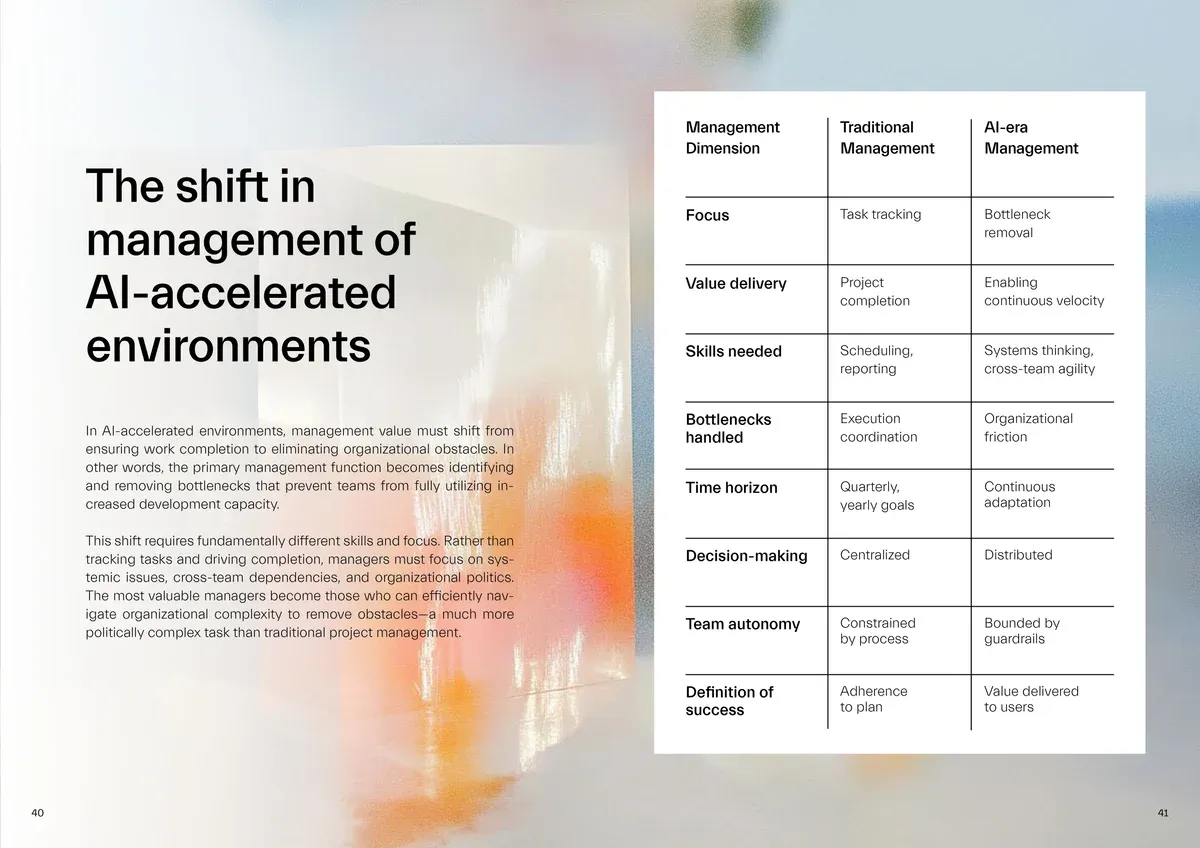
Content collaboration isn't on your agenda at the moment? Let's stay connected on LinkedIn for your future projects. 🤝
Key findings from the whitepaper
The study’s findings showcase the undeniable advantages of AI tools in software development. Here are the key takeaways:
Speed improvements
Tasks completed using AI tools were, on average, 40% faster than traditional methods. Some tasks, like frontend feature development, saw speed increases of over 175%.
Quality gains
Code quality improved by 89.7% on average when developers used AI tools. This was especially noticeable in test writing and documentation tasks.
Consistency
AI tools significantly reduced variability in task performance. Developers using GenAI assistants had more predictable outcomes in both time and quality, even for complex assignments.
Developer satisfaction
Over 87% of participants reported positive experiences with AI tools, highlighting reduced cognitive load and enhanced confidence in their outputs.Key findings
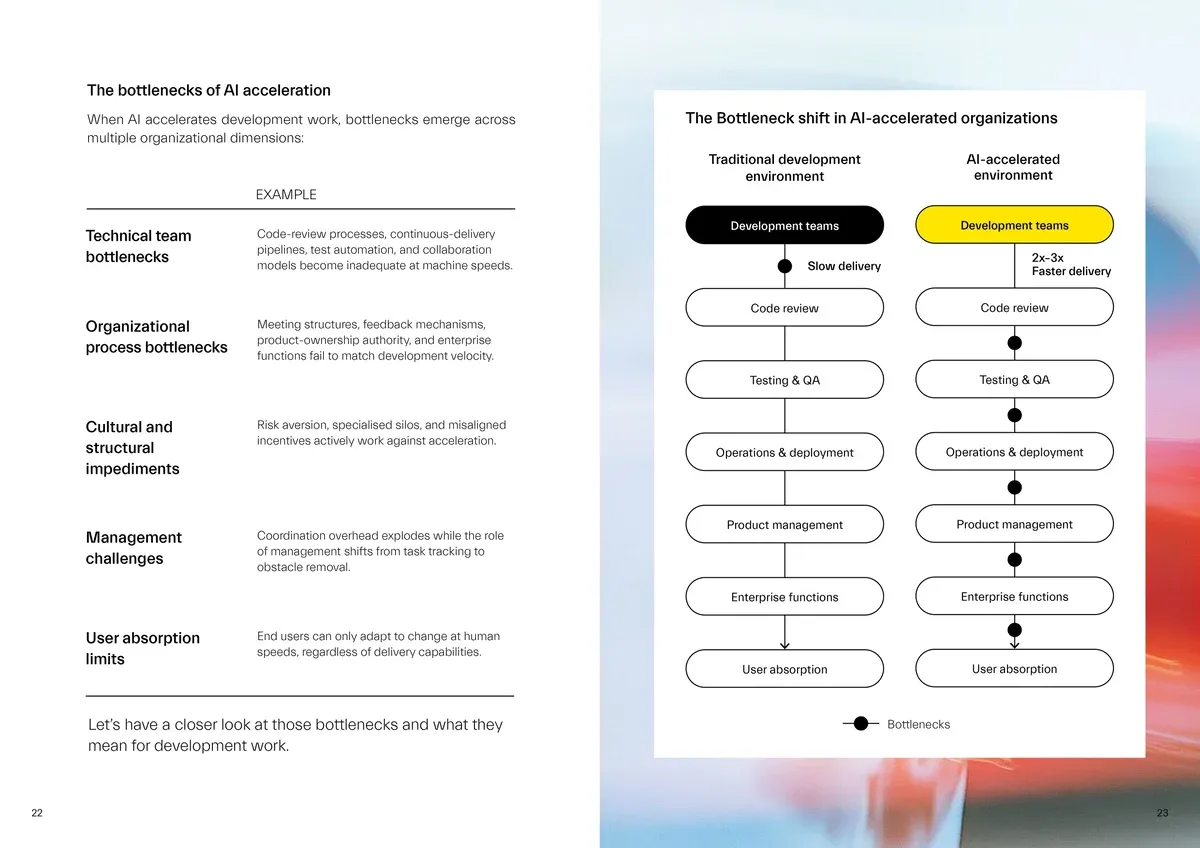
The study’s findings showcase the undeniable advantages of AI tools in software development. Here are the key takeaways:
1. AI speeds up development but exposes new bottlenecks
When code ships faster, the real delays show up in reviews, processes, and decision-making.
2. Productivity gains don’t happen by default
Casual use of AI helps a little. Structured use with the right setup and coaching leads to real impact.
3. Developers now guide, not grind
The role is shifting—from writing every line to shaping systems and reviewing AI-generated output.
4. Organisations must evolve too
You can’t scale AI impact if only part of the company moves faster. Culture, workflows, and leadership all need to align.
Content collaboration isn't on your agenda at the moment? Let's stay connected on LinkedIn for your future projects. 🤝








